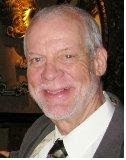Part 1
Where he turns out a gallon or two.
The birds in the sky get so drunk they can’t fly
From that good ol’ mountain dew.
[Chorus]
They call it that good ol’ mountain dew, mountain dew,
And them that refuse it are few, mighty few.
Well I'll hush up my mug if you'll fill up my jug
With that good ol’ mountain dew.
My aunt Lucille had an automobile,
It ran on a gallon or two.
It needed no gas and it needed no oil,
It just ran on that good ol’ mountain dew.
[Chorus]
My uncle Mort, he is sawed off and short,
He stands 'bout four foot two,
But he thinks he's a giant when you give him a pie-ant
Of that good ol’ mountain dew.
[Chorus]
Old Auntie June had a brand new perfume,
It had such a wonderful "pew".
But to her surprise, when she had it analyzed,
It was nothing but good ol’ mountain dew.
[Chorus]
The preacher-he walked by, with a tear in his eye
Said his wife came down with the flu.
And hadn't I ought just to give him a quar-art
Of that good ol’ mountain dew.
[Chorus]
There's an old holler tree, just a little way from me
Where you lay down a dollar or two.
You go ‘round the bend and come back again
And pickup a jug of that good ol’ mountain dew.
[Chorus]
Part 2
When I was born, I began to learn how to control my body and to understand the sensory input I was receiving. Rather quickly, I learned to control my environment to obtain things for myself by communicating with the moving objects within my field of view. My method of communication was not all that sophisticated as I was still trying to control my vocal cords and mouth, but the moving objects seemed to understand and brought me food and warmth. I felt cared for and the master of my “world”.
As I grew, I realized that those moving objects did not always respond to gentle requests and I had to raise the volume of my slowly improving speech. They were rather slow in understanding my attempts to learn their sounds. But eventually we learned to communicate reliably.
At last I had learned enough to be safely around other people and I was sent to school to learn more skills and information about the world I live in. This learning process continued for 12-years until I graduated high school. My first year in college taught me that I would never be a high school chemistry teacher. Shortly after I learned that particular lesson, I joined the Air Force and serious education began.
The first military lesson I learned was self-discipline. This was achieved by forced discipline based upon fear of what would be the consequences to me if I did not do what I was told – consequences far worse than my parents had inflicted upon me. I learned that not all friendly people were “true friends”; not all good looking people were in fact, good; not all “ugly” people were dumb; and most importantly, don’t judge people by skin color. I also learned to differentiate between people worth knowing and those whose personalities were so distasteful as to be avoided.
During those years and the ones that followed, I continued to learn about people, places, and things worth knowing. Unfortunately, I also learned that the world is not a particularly safe place and that tragedy and injustice abound. I learned the world of people is constantly changing, sometimes for the better and sometimes not. I also learned that when the wicked rule, the people mourn.
Now, some 65-years after my birth, I am still learning. Only the lessons are more about me than the world around me. I am learning about my orientation and what it means. I am learning to integrate my 12-year old adolescent personality with my 65-year old adult body. It is not happening very smoothly and probably has to do with a left-brain, right-brain conflict. Or perhaps I am just doomed to have a child-like outlook my whole life.
As the time draws ever closer to the occasion of my passing, I will still be looking to learn what is beyond this life. To paraphrase the attitude of my close friend, Peter, I declare, “To die will be a great adventure -- in learning.”
About the Author
I was born in June of 1948 in Los Angeles, living first in Lawndale and then in Redondo Beach. Just prior to turning 8 years old in 1956, I began living with my grandparents on their farm in Isanti County, Minnesota for two years during which time my parents divorced.
When united with my mother and stepfather two years later in 1958, I lived first at Emerald Bay and then at South Lake Tahoe, California, graduating from South Tahoe High School in 1966. After three tours of duty with the Air Force, I moved to Denver, Colorado where I lived with my wife and four children until her passing away from complications of breast cancer four days after the 9-11 terrorist attack.
I came out as a gay man in the summer of 2010. I find writing these memories to be therapeutic.
My story blog is, TheTahoeBoy.Blogspot.com.








